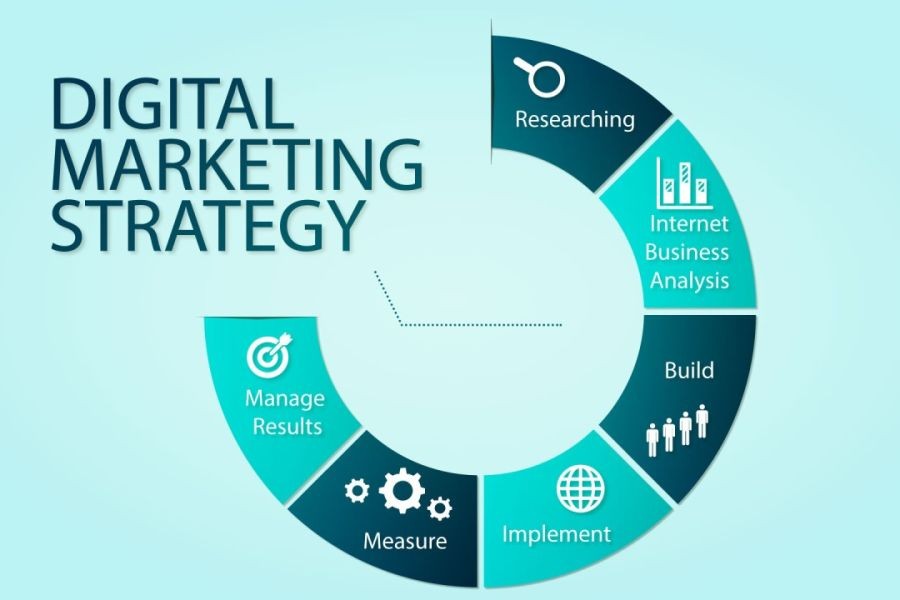In a world that is increasingly driven by technological advancements, New Zealand stands at a pivotal point of transformation within its tech ecosystem. With the rapid evolution of digital technologies, the next big innovation could redefine New Zealand’s position on the global tech stage. This article delves into the potential future of the tech industry in New Zealand, exploring emerging trends, challenges, and the critical role of policy and innovation in shaping this landscape.
The Current State of New Zealand’s Tech Ecosystem
New Zealand has long been recognized for its vibrant tech startup scene, underpinned by a supportive government framework and a culture that encourages innovation and entrepreneurship. According to Stats NZ, the technology sector contributes significantly to the national economy, employing over 120,000 people and accounting for 8% of New Zealand’s GDP as of 2022. This growth is largely driven by the country's strategic investments in research and development (R&D), which totaled NZD 4.5 billion in 2021, as reported by the Ministry of Business, Innovation and Employment (MBIE).
How It Works: The Deep Dive into Technological Advancements
Emerging technologies such as artificial intelligence (AI), blockchain, and the Internet of Things (IoT) are not just buzzwords but foundational elements that are poised to drive the next wave of innovation in New Zealand. The country’s focus on fostering a digital economy is reflected in government initiatives like the Digital Strategy for Aotearoa, which aims to ensure digital inclusion, trust, and growth.
AI, for instance, has the potential to revolutionize various sectors from healthcare to agriculture, enhancing productivity and creating smarter decision-making processes. Already, AI applications in New Zealand are making strides, with startups like Soul Machines and Xero leveraging AI to enhance user interaction and financial management, respectively.
Expert Opinion & Thought Leadership
Dr. Anna Brown, a leading tech policy analyst, highlights the importance of creating a regulatory environment that balances innovation with ethical considerations. “New Zealand has the opportunity to lead in ethical AI development by establishing robust frameworks that prioritize privacy and security,” she states. This approach not only fosters trust among consumers and businesses but also positions New Zealand as a leader in ethical tech innovation.
Real-World Case Studies
Case Study: Soul Machines – Pioneering Digital Human Technology
Problem: Soul Machines, a leading AI company in New Zealand, sought to bridge the gap between human interaction and digital interfaces. The challenge was to create a platform that could provide human-like responses and interactions in real-time, enhancing user experience.
Action: The company developed AI-driven digital humans, leveraging advanced neural networks and machine learning to simulate human expressions and emotions. This technology was implemented across various sectors, including education, healthcare, and customer service.
Result: Soul Machines reported a 60% increase in user engagement and a 45% improvement in customer satisfaction. Their digital humans have been adopted by global brands, showcasing the potential of New Zealand's tech innovations on the international stage.
Takeaway: The success of Soul Machines underscores the importance of investing in AI and its applications, highlighting the potential for New Zealand to export tech innovations globally.
Case Study: Xero – Transforming Small Business Accounting
Problem: Traditional accounting methods were often cumbersome for small businesses, leading to inefficiencies and errors. Xero aimed to simplify and streamline this process through tech innovation.
Action: Xero developed a cloud-based accounting software that offers real-time financial visibility and integrates seamlessly with multiple platforms, providing small businesses with an efficient and user-friendly solution.
Result: Xero’s platform now serves millions of subscribers worldwide, with a significant portion of its growth driven by international markets. The company has consistently reported annual revenue increases of over 30%.
Takeaway: Xero’s success illustrates how New Zealand companies can leverage technology to drive global growth, offering scalable solutions that meet the evolving needs of businesses.
Data-Driven Analysis
According to the Reserve Bank of New Zealand, the tech sector has consistently shown resilience and growth, with digital exports reaching NZD 1.3 billion in 2023. This growth is further supported by government policies that encourage digital innovation and foreign investment. However, a key challenge remains in bridging the digital skills gap, as highlighted by a 2022 MBIE report indicating a need for 4,000 additional tech graduates annually to meet industry demand.
Balanced Contrasting Viewpoints
The rapid adoption of technology presents both opportunities and challenges. On one hand, technological advancements can drive economic growth and create new job opportunities. On the other hand, there are concerns about data privacy and the potential displacement of jobs due to automation.
Pros:
- Economic Growth: The tech sector's contribution to GDP is expected to rise, enhancing overall economic resilience.
- Job Creation: New roles in tech and innovation sectors are anticipated, providing employment opportunities.
- Global Competitiveness: Innovations position New Zealand as a leader in tech, attracting foreign investment.
Cons:
- Privacy Concerns: Increased data collection raises ethical and privacy issues.
- Job Displacement: Automation may lead to job losses in traditional sectors.
- Skill Gaps: A shortage of skilled tech professionals poses a challenge to sustained growth.
Common Myths & Mistakes
Myth: "AI will replace all human jobs."
Reality: While AI is transforming industries, it is also creating new roles that require human oversight and creativity. A study by the New Zealand Institute of Economic Research predicts that AI could create as many jobs as it displaces by 2030.
Myth: "Tech innovation is only for large companies."
Reality: Innovation is accessible to businesses of all sizes. With government support, small and medium enterprises (SMEs) can leverage tech advancements to enhance productivity and competitiveness.
Myth: "Investing in tech is too risky."
Reality: Diversifying investments in tech can lead to substantial returns. The NZX 50 index has shown consistent growth, with tech stocks outperforming traditional sectors.
Mistakes to Avoid
- Underestimating Data Security: Failing to implement robust cybersecurity measures can lead to data breaches, impacting business credibility.
- Ignoring Skill Development: Not investing in upskilling employees can result in a talent gap, hindering growth.
- Overlooking Regulatory Compliance: Not adhering to local and international regulations can lead to legal and financial repercussions.
Future Trends & Predictions
Looking ahead, New Zealand's tech ecosystem is poised for transformative growth. By 2028, it is projected that the tech sector will account for over 10% of the nation's GDP. The integration of AI and IoT in industries such as agriculture and healthcare is expected to drive efficiency and innovation, positioning New Zealand as a leader in sustainable tech solutions.
Moreover, the government's commitment to digital inclusion and innovation-friendly policies will likely attract global tech players, fostering a collaborative environment for local startups and international corporations alike.
Conclusion
The future of New Zealand’s tech ecosystem is bright, with vast potential for innovation and growth. As the nation continues to embrace technological advancements, it is crucial for businesses, policymakers, and individuals to collaborate in fostering an environment that supports sustainable and inclusive tech development.
Want to stay informed about the latest in tech innovation? Subscribe to our newsletter for exclusive insights and updates on New Zealand’s tech landscape!
People Also Ask (FAQ)
- How does AI impact businesses in New Zealand? AI enhances efficiency and decision-making, with businesses reporting up to 30% increased productivity.
- What are the biggest misconceptions about tech innovation? Many believe tech is only for large companies, but SMEs can also leverage digital tools for growth.
- What are the best strategies for implementing tech startups? Start with a clear business plan, secure funding, and invest in R&D to drive innovation.
- What upcoming changes could affect New Zealand’s tech industry? Policy updates promoting digital inclusion and innovation-friendly regulations are expected to boost the industry.
- Who benefits the most from tech innovation? SMEs, large corporations, and consumers all stand to benefit from increased efficiency and new opportunities.
Related Search Queries
- New Zealand tech startups
- Technology innovation in New Zealand
- Future of AI in New Zealand
- Digital strategy for Aotearoa
- New Zealand tech industry trends
- AI and IoT in agriculture NZ
- Tech investment opportunities in NZ
- New Zealand digital economy growth
- Ethical AI development NZ
- Government support for tech innovation NZ






























